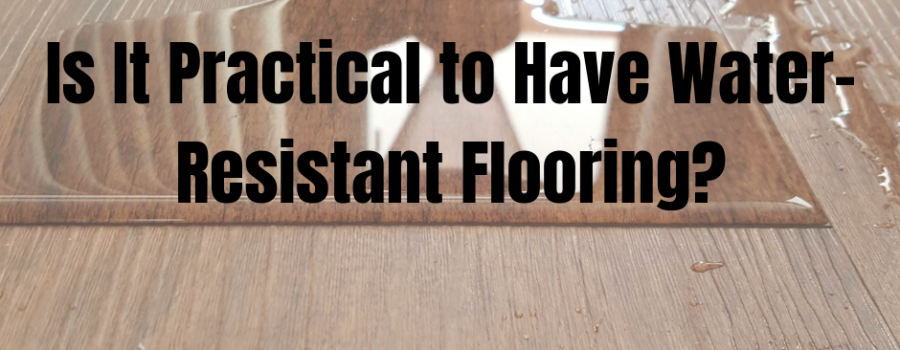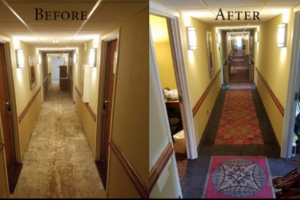Choosing the right type of flooring should not only look nice in any home, but also cost-efficient and practical. It requires careful consideration as it can make or break your home’s overall look. That is why it is important to buy the best flooring available.
One great flooring option to have is water-resistant flooring. The good thing about most flooring nowadays is that it combines aesthetics with practicality. But first, you should know whether you need water-resistant flooring in the first place. If so, what type of flooring should you choose?
Why water-resistant flooring may be necessary?

Water can seep through anything porous, including clothing and even flooring. For the latter, frequent exposure to water and moisture can destroy the flooring in the long run. In the process, mold and mildew may also develop which can smell unpleasant and even cause spread of bacteria and germs.
On the other hand, waterproof flooring adds protection against moisture that can damage the flooring over time. Likewise, cleaning can be a breeze – you simply wipe off the spill without staining the floor and waiting for it to dry.
Technically, floorings made from vinyl and other synthetic materials are better than those made with wood and bamboo. This is because the latter, which are mostly made from organic materials, are more prone to moisture, molds and mildew, and may tend to decompose faster. On the other hand, the former mostly contain chemicals that make it prone to moisture and water damage.
Choosing waterproof flooring
Choosing waterproof flooring depends on which room you will install it. For example, the bathroom and kitchen requires having waterproof flooring. This is to prevent accidental slipping as well and formation of molds and mildew. Among recommended waterproof flooring you can choose include:
- Porcelain tiles – great for bathrooms, pool areas, and kitchen areas. It is also has very low water absorption rate, making it an ideal flooring for the aforementioned rooms.

- Vinyl sheets/tiles – guaranteed 100 percent waterproof, although it may allow minimal water penetration through the seams.

- Concrete – as long as properly-sealed, it can also be a great waterproof flooring option.

- Luxury vinyl flooring – usually comes in plank strips, it can provide a tight seal that prevents water and moisture from seeping through.

On the other hand, you should avoid carpets and wood-based flooring if you want to have water-resistant flooring. Otherwise, the above flooring types are the best choices for waterproof flooring. More importantly, you should place these floorings to specific areas where spills and moisture are common, such as the bathroom and kitchens.





Leave a Reply
Your email is safe with us.